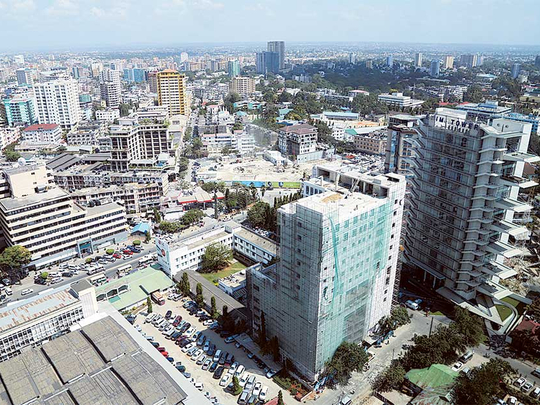
Dubai: An African safari is turning out to be quite a lucrative opportunity for UAE businesses, with more of them now signing up to establish a brand presence — or scale up an existing one — in that strategic market.
Maaza International Co. (MIC), the UAE entity behind the popular mango beverage brand, recently had its partner in Ethiopia open a bottling plant with an installed capacity of 3.5 million cases a year. “It’s a bottling and distribution arrangement we have with Petram Plc and similar to arrangements we have for Saudi Arabia or Kuwait,” said Samer Salah, Commercial Director at MIC. “They had been importing our products earlier and it was felt there’s merit in upgrading the relationship to a franchisee. Apart from within Ethiopia itself, the bottler can distribute to some outside territories as well.
“This is the second Maaza bottling arrangement we have in Africa after introducing it in Sudan 11 years ago. Ideally, we would like to go further into Africa, markets like Tanzania or Kenya. These are markets ripe for higher growth rates.” (For Egypt, it has a pure distribution agreement.)
That African markets are on the cusp of major breakthroughs is a sentiment with which Eisa Adam Ebrahim, who heads the specialist retail and real estate consultancy Bullary, is in broad agreement with. “However, a UAE business will have to differentiate between those African markets which have an established physical and legal infrastructure and those which don’t,” said Ibrahim, who also has direct retail-specific investments in eastern Africa.
“The return on investments from an Africa exposure is very high, in fact much higher than what local or Gulf businesses would get in their domestic markets. Yes, there are associated risks such as corruption and a less transparent legal environment in dealing with Africa.
“But at the end of the day that is one market where there’s a real need for products and services, and such gaps can be filled up quite easily by UAE or Gulf businesses.”
Last year, an Al Futtaim Group subsidiary Famco acquired a majority stake in the Kenyan automotive distributor CMC Holdings Ltd., which represents the Ford and Volkswagen names in that market. At KSh7.5 billion (a Kenyan shilling is equivalent to $0.011 at today’s values), it was one of the biggest deals entered into by a UAE based private sector entity in Africa.
Whether a UAE business prefers a direct exposure or franchising deals has to strictly be a case by case decision, according to Ibrahim. “The Landmark Group (which owns the likes of Babyshop, Splash and Home Centre) has been expanding like anything in central and northern African markets,” he added. “Most UAE businesses prefer a franchisee arrangement because they don’t want to get into the operational nitty-gritty of a new market, and especially in Africa. But tie-ins with the right sort of partner is vital. The pick-and-choose approach will prevail.”











